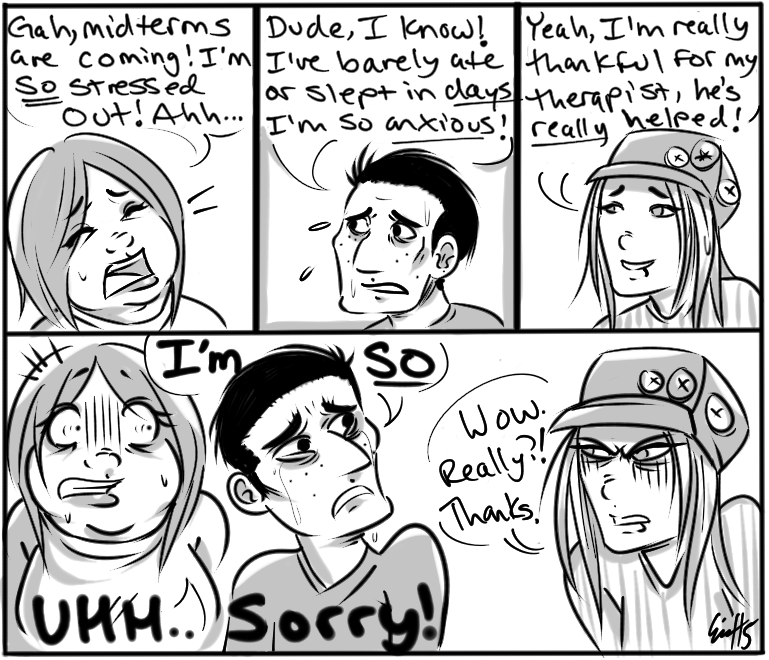There is this ridiculous notion that college students should be able to balance all aspects of college effortlessly, which usually leads to a lot of pressure on students to get it right. When the college experience inevitably doesn’t go the way it’s portrayed in movies or from a nostalgic adult, it’s surprising at first and difficult to handle. If these are supposed to be the best times, and they aren’t going that way, it is understandable that many seek therapy for such things as depression and anxiety. What isn’t understandable is why talking about therapy is still a social taboo.
Many people in our society experience depression, anxiety or both, and we must acknowledge this trend. It has become relatively common and it is time that the stigma regarding mental health, especially concerning attending therapy, officially retires. Progress has been made in this area, but there are still certain connotations that are not challenged and allow for the continuation of misconceptions about therapy.
Recently, I was eating with a couple friends. One of them said that they would have to leave early to make a therapy appointment. It wasn’t uncomfortable, but the other friend’s reaction certainly implied discomfort. They seemed shocked by the comment and looked at our friend with obvious pity. It was well-intended, but ill-received. The reaction did little to extend comfort or understanding, and instead extended the thought that there is something wrong with a friend who goes to therapy. This small interaction is an unfortunate representation of how many still treat those who attend therapy sessions. There is this idea that people need to have everything together at all times, or else they are weak.
Unfortunately, many who can relate to experiencing different depression and anxiety disorders don’t talk about it for that very reason. The reactions are well meaning, but filled with discomfort and a stigma that something must be wrong with a person if they are seeing a therapist. This may stop people from discussing it, but it hasn’t stopped the increase in therapy-goers.
There are more college students who attend therapy sessions for anxiety and depression disorders than ever before. In just the last three years, the number of students seeking help for feelings of anxiety and depression has risen 20 percent according to an annual report released by UCLA’s Higher Education Research Institute. Even the Counseling Center here at NC State has seen a substantial increase in visits. Because it has become relatively common, there should be less of a shock factor when someone talks about therapy and more freedom to discuss it openly.
After all, college is hard. It can be challenging to balance the classes, jobs, social life, and family dynamics that cause stress. Each and every college student has felt at least slightly overwhelmed, and the majority has probably experienced feelings of anxiety and depression. Because of this, there is no need to be surprised or demeaning when a person says they attend therapy and there is no shame in seeking help from someone trained to offer it.
Dropping the stigma does not make light of people’s experiencing anxiety and depression, but it acknowledges that these feelings do not signify a weak person in need of pity and promotes seeking areas of help when needed. Contrary to what is portrayed about the college life, it doesn’t necessarily constitute the best years of life, and it is OK not to enjoy it. It should be OK to talk openly about therapy without being afraid of an outdated stigma.












